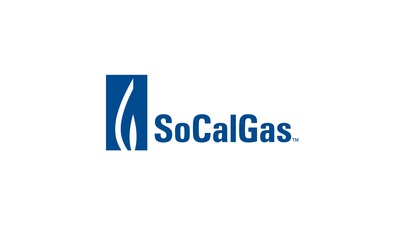SoCalGas Showcases Zero Emissions Hydrogen Fuel Cell Electric Technologies by Kenworth and Toyota at 2024 World Ag Expo
The innovative hydrogen technology can help commercial customers decarbonize their fleet and reduce local air pollution from the transportation sector, the largest generator of greenhouse gas and nitrogen oxide emissions in
"Incorporating multiple options like hydrogen, renewable natural gas, and electric vehicles, especially for medium- and heavy-duty transportation, can help provide companies and
Last year, Kenworth and Toyota completed a joint pilot program at the Port of
"Kenworth is proud to pioneer one of the longest driving ranges of zero emissions trucks on the market," said Kevin Haygood, Kenworth assistant general manager for sales and marketing. "With quick refueling, our regional and long-haul customers can achieve round-the-clock operations with an option that reliably and sustainably decarbonizes their fleet."
Also on display at the booth is one of SoCalGas' zero emissions hydrogen fleet vehicles, the Toyota Mirai, which uses a hydrogen fuel cell to generate the electricity that powers the vehicle. The latest 2023 model has a range of up to 402 miles, with city/highway milage of up to 76/71 mpg equivalent respectively.
"The Japanese word Mirai means 'future,' and our cutting-edge Mirai helped shine a light on how hydrogen can provide a viable pathway to a zero emissions future for company fleets," said Thibaut de Barros Conti, general manager Fuel Cell Solutions, Toyota Motor North America. "Because of the scalability of our hydrogen-powered fuel cell electric technology, we were able to integrate it into the Kenworth T680 truck to highlight how commercial customers can reduce their carbon footprint, operate more sustainably, and still maintain current range and refueling expectations."
SoCalGas has exhibited at every World Ag Expo since its inception in 1968, and the company's booth is located at the corner of H & Median Street. There is also a 30-foot shovel on display to emphasize the importance of calling 811 prior to beginning any project that involves digging. Call 811 or click here before digging, and follow 811 safety tips during your project. Learn more about SoCalGas' sustainability efforts at https://www.socalgas.com/sustainability.
About SoCalGas
Headquartered in
SoCalGas' mission is to build the cleanest, safest and most innovative energy infrastructure company in America. In support of that mission, SoCalGas aspires to achieve net-zero greenhouse gas emissions in its operations and delivery of energy by 2045 and to replacing 20 percent of its traditional natural gas supply to core customers with renewable natural gas (RNG) by 2030. Renewable natural gas is made from waste created by landfills and wastewater treatment plants. SoCalGas is also committed to investing in its gas delivery infrastructure while keeping bills affordable for customers. SoCalGas is a subsidiary of Sempra (NYSE: SRE), an energy infrastructure company based in San Diego.
For more information visit socalgas.com/newsroom or connect with SoCalGas on X (formerly Twitter) (@SoCalGas), Instagram (@SoCalGas) and Facebook.
This press release contains forward-looking statements within the meaning of the Private Securities Litigation Reform Act of 1995. Forward-looking statements are based on assumptions about the future, involve risks and uncertainties, and are not guarantees. Future results may differ materially from those expressed or implied in any forward-looking statement. These forward-looking statements represent our estimates and assumptions only as of the date of this press release. We assume no obligation to update or revise any forward-looking statement as a result of new information, future events or otherwise.
In this press release, forward-looking statements can be identified by words such as "believe," "expect," "intend," "anticipate," "contemplate," "plan," "estimate," "project," "forecast," "should," "could," "would," "will," "confident," "may," "can," "potential," "possible," "proposed," "in process," "construct," "develop," "opportunity," "initiative," "target," "outlook," "optimistic," "poised," "maintain," "continue," "progress," "advance," "goal," "aim," "commit," or similar expressions, or when we discuss our guidance, priorities, strategy, goals, vision, mission, opportunities, projections, intentions or expectations.
Factors, among others, that could cause actual results and events to differ materially from those expressed or implied in any forward-looking statement include: decisions, investigations, inquiries, regulations, denials or revocations of permits, consents, approvals or other authorizations, renewals of franchises, and other actions by the (i) California Public Utilities Commission (CPUC), U.S. Department of Energy,
These risks and uncertainties are further discussed in the reports that the company has filed with the U.S. Securities and Exchange Commission (SEC). These reports are available through the EDGAR system free-of-charge on the SEC's website, www.sec.gov, and on Sempra's website, www.sempra.com. Investors should not rely unduly on any forward-looking statements.
Sempra Infrastructure, Sempra Infrastructure Partners, Sempra Texas, Sempra Texas Utilities, Oncor Electric Delivery Company LLC (Oncor) and Infraestructura Energética Nova, S.A.P.I. de C.V. (IEnova) are not the same companies as the California utilities, San Diego Gas & Electric Company or Southern California Gas Company, and Sempra Infrastructure, Sempra Infrastructure Partners, Sempra Texas, Sempra Mexico, Sempra Texas Utilities, Oncor and IEnova are not regulated by the CPUC.
![]() View original content to download multimedia:https://www.prnewswire.com/news-releases/socalgas-showcases-zero-emissions-hydrogen-fuel-cell-electric-technologies-by-kenworth-and-toyota-at-2024-world-ag-expo-302058965.html
View original content to download multimedia:https://www.prnewswire.com/news-releases/socalgas-showcases-zero-emissions-hydrogen-fuel-cell-electric-technologies-by-kenworth-and-toyota-at-2024-world-ag-expo-302058965.html
SOURCE Southern California Gas Company







